Hello Friends!
Greetings from Barcelona☀️. Many thanks for your feedback on the last edition. I’d like to give a special shout out to New Jersey, Chicago, London, Hong Kong, and Bracebridge.😀 If you are joining The Quest for the first time, welcome to our weekly exploration of creativity, facilitation, and learning. You can catch up on past editions here.
In this edition: How can we hack education by embracing failure and have fun in the process? That’s our Quest this week.
🎮What video games teach us about failure
A video by educator and YouTuber Ana Lorena Fabrega, also known as Ms. Fab. If you are passionate about learning I highly recommend that you check out her website. In this video Ms. Fab argues that “video games give kids an optimistic sense of their own capabilities, they make failure fun, and help kids focus their time and energy on truly attainable goals.” At minute 1.19 and she drops a bomb:
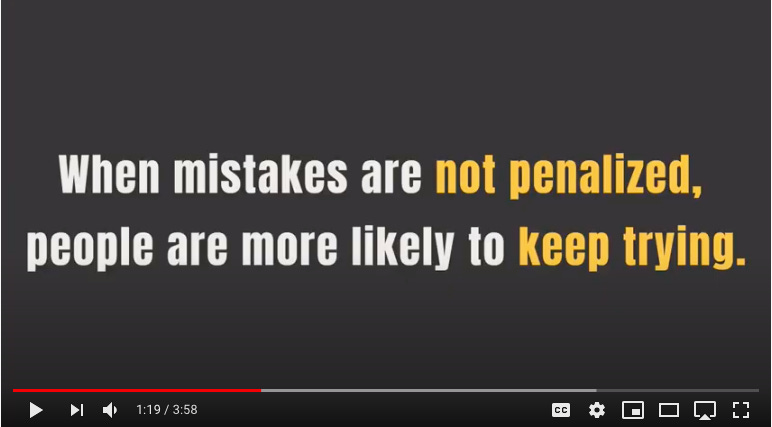
Makes sense right? But penalizing kids for making mistakes is still widespread in education. The lesson? It’s better not to try than to fail. Instead we need to be teaching kids that failure is not something to be feared. It’s necessary to build our sense of self-efficacy. And it makes us feel happy. How? Read on…
🎲Reality is broken
A book by Jane McGonigal recommended by coach and therapist Jenni Walford. It was published back in 2012. How did I miss this book??!! Even 8 years on, it is full of profound and relevant insights for learning. McGonigal argues that games have the potential to radically improve our own lives and to change the world. Also check out McGonigal’s brilliant TED Talk.
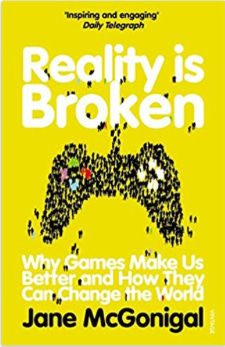
Three insights on failing from the book stood out to me as crucial to learning:
✅Fun failing: Gamers spend 80% of their time failing. Research shows that when we play a well-designed game, failure doesn’t disappoint us. It makes us happy in a particular kind of way: excited, interested, and most of all optimistic.
✅Positive failure feedback: The more gamers fail, the more motivated they are to try again. Video games are full of little visual and sound effects that add a little touch of humor to failing. Remember the sound effect when Pac-Man dies or gets captures by a ghost? That’s positive failure feedback.
✅Urgent Optimism: When we can enjoy our own failure, we can spend more time suspended in a state of urgent optimism. That moment of hope just before our success is real, when we feel inspired to try our hardest and do our best.
I also appreciated this reminder:
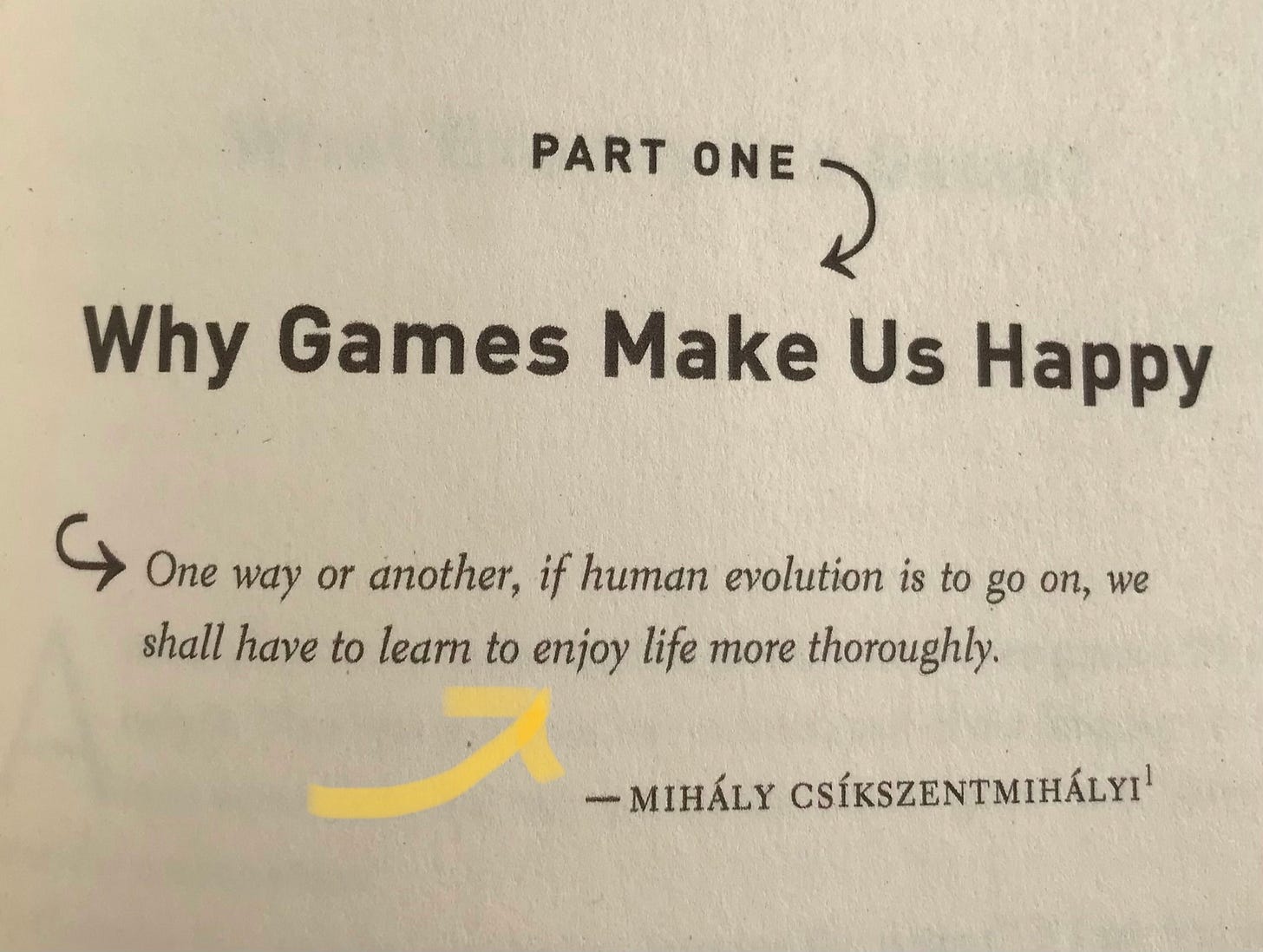
💭How would you reimagine learning?
OK, so clearly we have to take this time of disruption to change this broken system we call education. Education trailblazers Vishal Talreja and Suchetha Bhat from Dream a Dream in Bangalore, India have put out a “What If” challenge inviting people around the world to reimagine education so that it supports children and youth to thrive. You can join the thread on Twitter #WhatIf. What would you add?
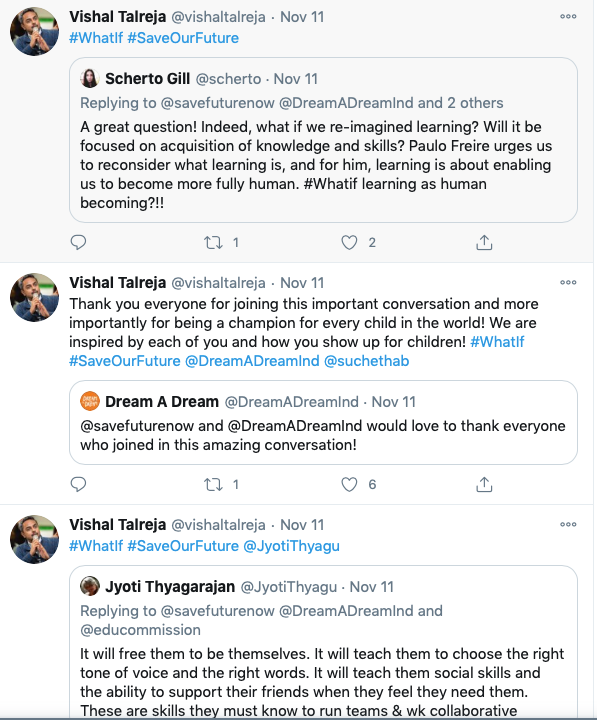
🤔What will it take to change?
The pace of change in education can be excruciatingly slow. So how can we speed things up? I came across an IDEO program for teachers called School Retool. It supports teachers to make change by using small, scrappy experiments called “hacks”. It’s these small “hacks” that lead to big change “preparing students for life in the real world.” They sum it up in the “Hack Mindset” which I’ve decided to adopt to everything I do from now on. I’d love to hear about your education hacks.
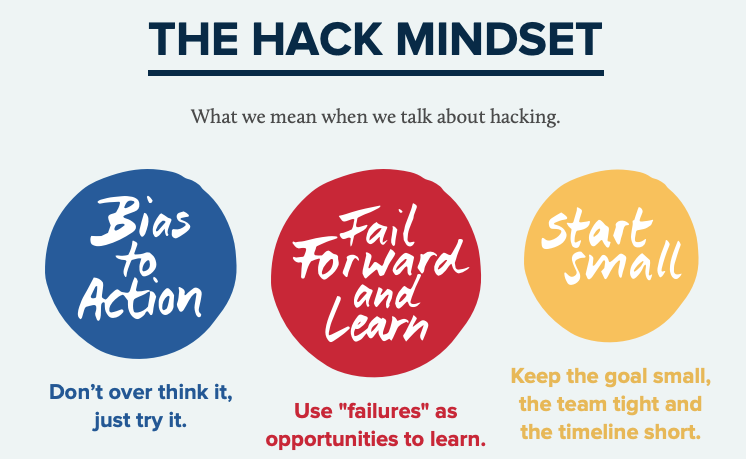
📷Photo of the week
I recently collaborated with PYE and the Catalunya Department of Education to deliver a month-long online teacher training on ways to bring creativity into the classroom. This is a photo of one of my favorite creative facilitation activities called the “Group Quilt”. Each participant creates a drawing that represents a strength that they bring to teaching. All of the drawings are then put together into a group quilt of strengths. In this group we have patience, empathy, resilience, adaptability, courage, fighting spirit, passion and ❤️. These are the hackers who give me hope for change in education.
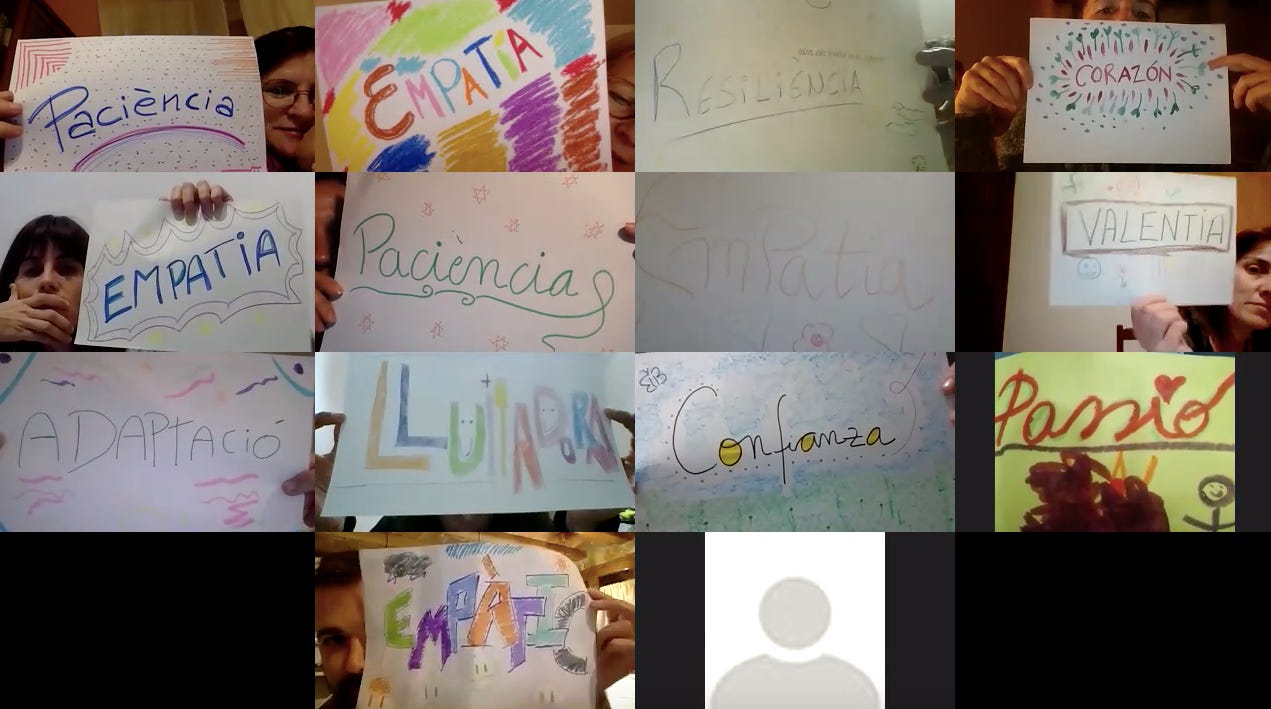
Thanks for reading. I always love hearing your feedback and suggestions. Feel free to email me at gwyn@gwynwansbrough.com.
If you are enjoying The Quest, I’d appreciate it if you shared it with anyone you think might like it.
Until next week!
Gwyn